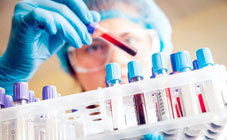
Success of Georgia in the focus of BBC
By Khatia Bzhalava
Tuesday, July 7
British Broadcasting Corporation dedicates an article to the Georgian epidemiologists with the Headline “How 'three musketeers' helped Georgia fight virus.” The author pays attention to the dedication of epidemiologists, governments “swift response” to the challenge and the country’s overall success in COVID-19 terms.
The author of the article, Rayhan Demytrie points out that Georgia is included in a list of 15 non-EU states the European Union considers safe enough to open its borders to and adds that it is the only former Soviet Republic to achieve this.
The article suggests comparison according to which ‘coronavirus has been raging’ in neighbouring Armenia. Hundreds of new cases of Covid-19 are being registered there every day, the total number of infections has exceeded 26,000 and the death toll stands at nearly 500.
As the article notes, the first case of coronavirus in Georgia was detected at the end of February which was followed by the government’s ‘swift’ response. By mid-March, all the schools and universities as well as non-essential businesses we’re closed down and public transport was suspended. After the introduction of a state of emergency on 21 March, large gatherings and intra-city travel were banned. Nightly curfews were introduced.
The author also pays attention to the restrictions imposed during Orthodox Easter, ‘Georgia's most important religious holiday, ’ when the authorities banned private transport and closed cemeteries.
In the email sent to BBC by the Prime Minister of Georgia, Giorgi Gakharia, he states, "We took note of the pandemic's threat a month before the first confirmed case. Given our country's specifics, such as our location and small size, we could not use the examples of other countries."
The article stresses Russia’s continuous disinformation campaign against the Lugar Laboratory, an institution that was one of the most important indicators of Georgia’s success.
“The NCDC's Lugar Laboratory has been a constant target of Russian disinformation, which has accused it of being part of a US secret bio-weapons programme,” reads the article.
The role of ‘three musketeers’ in the fight against the virus, was especially highlighted in the article. The trio includes the head of the NCDC, Amiran Gamkrelidze, the person in charge of the Lugar lab, Paata Imnadze, and the main virologist, Tengiz Tsertsvadze, who is head of Tbilisi's infectious diseases, Aids and immunology research centre.
The article encloses the statement of the head of the NCDC, Amiran Gamrekhelidze.
“By the gold standard, we have made almost 30,000 PCR tests per million of our population. The recovery rate has risen to 86%, but unfortunately, we had 15 deaths which represent 1.6%. Compared to global rates it is very low,” said Gamkrelidze.
Another popular figure, Marina Ezugbaia, medical head of Tbilisi's infectious diseases hospital, who was the face of the public health campaign is also mentioned.
The article pays attention to the effective steps taken in order to prevent virus spread, which includes severe penalties for disobeying the rules during the state of emergency and ‘Stay Home’ warnings, digitally displayed at bus stops and the same message broadcasted on people's devices by mobile phone operators.
Lastly, the article notes that many Georgian businesses and restaurants have reopened, though the wearing of masks is obligatory in indoor public spaces and there are tight rules on distancing and restrictions on large gatherings.
In total, there are confirmed 953 cases in Georgia and the rate of new confirmed cases is low. 830 patients have recovered and 15 have died.


